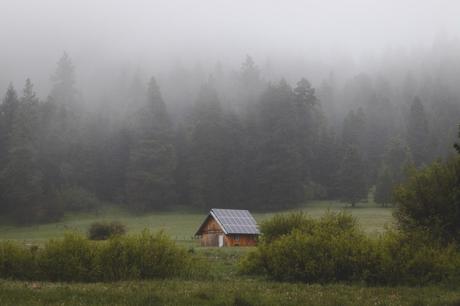
With upwards of 1.7 billion living off the grid around the world and upwards of 180,000 in the U.S. and growing, you're not alone if off grid living is calling to you.
Thanks to the internet and new renewable energy options there has been a huge movement of people looking to live self-sufficiently, without utility services, and with a focus on being environmentally conscious.
But exactly what do I need to know about living off the grid to do it successfully, you ask?
To help, we've put together 10 of our top tips to off the grid living. Keep reading to learn what you need to know to make sure you can do it. Then, get started preparing for your new lifestyle adventure.
1. Make a List of What You Need to Survive
Start with all the must-haves just to get your head in the right space. Utilities are the obvious needs but there are others. Make a list.
Some must-haves to consider:
- Power utilities including gas and electricity for cooking and heating
- Water
- Sewer system
- Food supply
- Good soil to grow food
- Weather
- Community
Keep this list open so you can add new items as needed.
2. Select Your Homestead Location With Care
Take your time looking at all your location options. The location must meet all your must-have needs. But it also should appeal to you.
Before you settle on a spot, do a trial run in the area. Get a rental in the area and see what it's like to live there.
3. Get a Solid Power System
There are a variety of ways to power your homestead. You can set yourself up with a few of them. Solar power is great as your main power source.
Start with portable solar at a tried-and-true off-grid friendly company, like PoweredPortableSolar.com, and a generator powered by gasoline as your backup.
Depending on location, you can also look for ways to use water and wind to generate power.
4. Get a Solid Water Source
A well is a great option as a water source. You can look to get land with a well or build one. It can be expensive to do this and you need to have a good, clean water source.
Make sure to drill your well at least 50 feet away from any septic tank or field lines.
If the land you're living on doesn't have a well and you can't build one, you can set up a system to collect rainfall. Rainfall collection can supply you with water for your home, to drink, and to water your garden, crops, and animals.
You can also set up gravity-fed water systems. This allows you to get water from creeks, streams and other small water sources.
5. Get a Solid Communication System
Satellite communication is your friend when living off the grid. Get a satellite phone and set up a hotspot for your internet and WiFi access.
6. Get a Solid Sewage and Waste Water System
In the city, you use the toilet, flush it and don't think much about it. Off grid, you're going to need to provide your own sewage and waste water drainage system.
For sewage, most go with a septic tank. Many also go with toilets that use sewage as compost or dry toilets.
For the waste water, also called grey water, the water that drains from your bath and sink, you can set up a grey water recycle system. This makes your well and rain water last longer.
7. Get Smart About Energy Use
Save energy by insulating your home. This will keep the cool in during hot summer months and keep the heat in during the winter.
Also, be sure to seal windows, doors, and vents.
8. Set Up a Good Food Supply
Consider both farming in a small area of land and getting animals.
Chickens can supply you with daily eggs. A cow or goat can supply you with milk. Learn how to tend to animals before you go. Learn how to build a simple chicken coop. Learn how to make your own udder balm.
Find land with great soil or learn to cultivate soil, adding nutrients back in with compost and animal poop. Grow your own vegetables and fruit. Use
Research to find out what grows best in your location. Start with the basics like potatoes, tomatoes, and strawberries. If needed, use black plastic tarp to protect the plants from cold and bugs.
9. Consider Living in an Off-Grid Community
Since there are so many others moving off grid, there are communities living together or nearby each other. Travel around when choosing your location and meet others with the same mindset. You're living off grid but you don't need to live like a hermit.
Community is great for fun and also support when a tough time occurs. When you're forging into uncharted off-grid waters for the first time, other off-gridders can help show you the way and lend a hand in setting up efficiently and effectively.
10. Plan Your Finances Well Ahead of Time
Make sure your finances are in order so that you can support your lifestyle.
Create a budget. Attend an off-gridder workshop on how to plan and come up with realistic costs involved with off-grid living.
Ask plenty of questions at every turn.
Save, get an extra job, do your best and then relax, as needed.
Off Grid Living for You
Now that you have 10 great tips to off grid living, you're ready to get started gathering resources and planning for your move. Begin with the big picture steps like location and financial planning. Then, once you have the groundwork set, you can put together a new abode where you can live comfortably and enjoy your newfound freedom.
Also, feel free to peruse our blog for other useful lifestyle tips and life hacks that you can take with you on your adventure.
